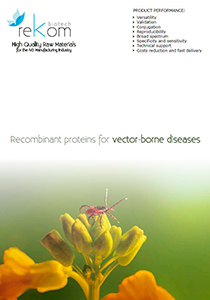Babesiosis (or piroplasmosis)
The babesiosis is a vector-borne disease caused by parasites of the genus Babesia, attacking red blood cells, invading erythrocytes and destroying them. It is a disease that mainly affects animals, although it can occur in humans, depending on the species. Babesiosis is transmitted through tick bites, although it can also happen through blood transfusion. The most common symptoms are malaise, fever, fatigue, chills, hemolytic anemia, and headaches, muscle or joint pain. In other cases, especially in immunocompromised or elderly patients, it can be life-threatening. However, this disease can also be asymptomatic, and persist for several months or years. The treatment consists of broad-spectrum antiprotozoals and antibiotics, and as prevention it is recommended to avoid endemic areas and use insect repellents. Since the symptoms are very similar to other diseases, the diagnosis is very important, and can be done through a peripheral blood smear under a microscope, a serological test or PCR.
Over 100 different Babesia species have been described, but fewer than 20 are of medical and veterinary importance. Babesia canis and Babesia gibsoni are protozoa of red blood cells (piroplasma), transmitted by ixoid ticks, and they mainly affect dogs. It is important to identify the species that is causing the disease, since the prognosis and treatment are different.
Canine babesiosis has a worldwide distribution, although there is a greater impact in tropical and subtropical areas.
Animal infectious disease (mainly dogs)
At Rekom Biotech, we desing and manufacture IVD reagents for diagnosis of Babesiosis (or piroplasmosis). If you do not find what you are looking for, you can request our custom-made recombinant proteins/antibodies service. Do not hesitate to contact us!
Recombinant proteins
How to reconsitute lyophizated vials
Recombinant antigens for diagnosis of Babesiosis




